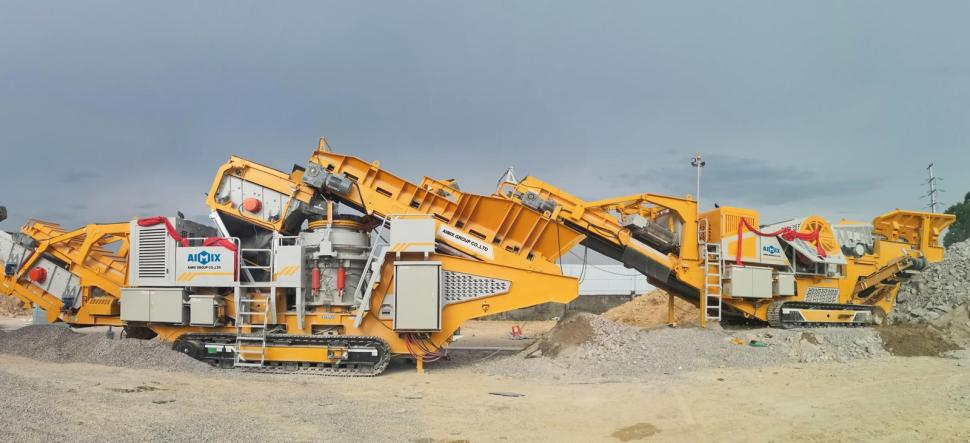Which Kind Of Material Is More Suitable For Mobile Impact Crusher?
- aimixglobal5
- Aug 26, 2024
- 2 min read
Mobile impact crushers are a subset of the impact crusher family that showcases unparalleled versatility and flexibility in the mining and construction sectors. These machines, capable of handling a wide array of materials, are designed to thrive in the harshest of environments. However, not all materials are created equal when it comes to their suitability for portable impactor plants. Let's explore the types of materials that are more conducive to the efficiency and longevity of these powerful machines.
I. Introduction to Mobile Impact Crushers
A. The Versatility of Mobile Impact Crushers
Mobile impact crushers are renowned for their adaptability and robustness. They can be easily transported and operate in various terrains, making them an invaluable asset for on-site crushing operations. The ability to crush a diverse range of materials sets them apart, yet it is crucial to discern which materials will maximize their potential.

B. Factors Influencing Material Suitability
Several factors come into play when determining the suitability of materials for mobile impact crushers. These include the machine's design, the material's physical properties, and the desired end product. Understanding these influencers is key to optimizing the performance and productivity of the crusher.
II. Materials Ideal for Mobile Impact Crushers
A. Soft to Medium-Hard Natural Rocks
Mobile impact crushers excel in processing soft to medium-hard natural rocks such as limestone, dolomite, and shale. These materials, with their moderate hardness, allow the crusher to operate at peak efficiency, resulting in a high-quality product with minimal wear on the machine. The versatility of the AIMIX crusher enables it to adapt to the specific characteristics of these rocks, ensuring a consistent output.
B. Recycled Aggregates and Construction Waste
In the realm of recycling, mobile impact crushers are the champions of converting construction waste and recycled aggregates into usable materials. Their ability to crush concrete, asphalt, and other construction debris makes them an indispensable tool in the quest for sustainable development. By processing these materials, mobile impact crushers contribute to reducing the environmental footprint of construction projects.

III. Considerations for Material Selection
A. Moisture Content and Abrasiveness
The moisture content and abrasiveness of the material are critical considerations when selecting the right material for a mobile impact crusher. Excessive moisture can lead to clogging and reduced efficiency, while highly abrasive materials can accelerate wear on the crusher's components. Striking a balance between these factors is essential for maintaining the crusher's performance and lifespan.
B. Feed Size and Crushing Ratio
The feed size and the desired crushing ratio also play a significant role in material selection. Mobile impact crushers are designed to handle a certain range of feed sizes, and exceeding these limits can compromise the crusher's effectiveness. Additionally, the crushing ratio, which determines the size reduction of the material, must be carefully considered to ensure that the crusher can achieve the necessary reduction without overloading the machine.
In conclusion, the choice of material for a mobile impact crusher is not a trivial matter. It requires a thorough understanding of the crusher's capabilities and the material's properties. By selecting soft to medium-hard natural rocks and recycled aggregates that match the crusher's specifications, operators can optimize its performance and contribute to a more sustainable and efficient crushing process.



Comments